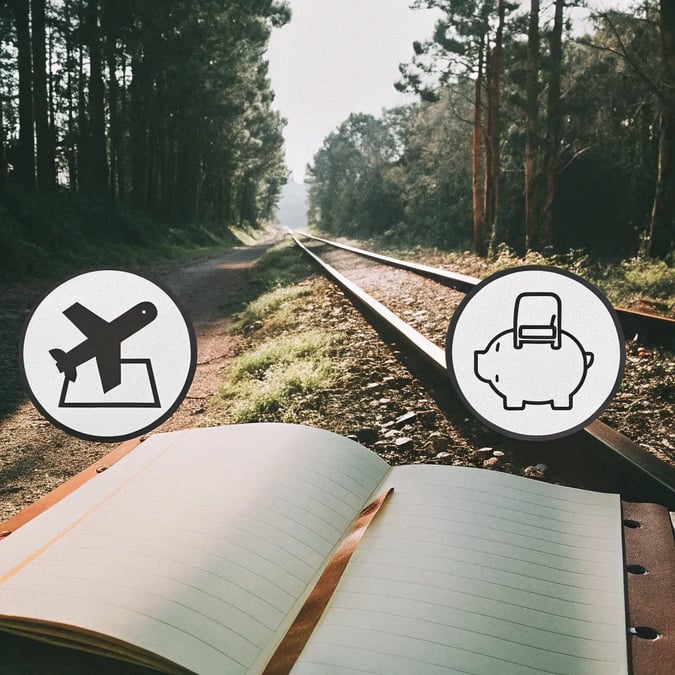
Planning a vacation that won't demolish your bank account has always been challenging, but technology is changing the game in ways we couldn't have imagined just a few years ago.
How AI Transformed My Vacation Budget Planning
Last month, I decided to test how effectively artificial intelligence could help me plan an affordable week-long trip to Orlando. The results honestly surprised me. Not only did I save approximately 34% compared to my usual vacation spending, but the experience was actually more enjoyable because I wasn't constantly stressing about money.
"I've been planning trips for 15 years and I've never seen tools this powerful for the average traveler," says travel expert Melissa Haynes from Budget Travel Magazine. "AI is democratizing access to deals that previously only industry insiders knew about."
But how exactly does this work in practice? Let me walk you through the specific strategies and tools that made the biggest difference.

Finding Flight Deals Without Endless Searching
The most dramatic savings came from how I booked my flights. Instead of the traditional approach of checking multiple booking sites, I used AI-powered tools that did something far more sophisticated.
I tried Google Flights' price prediction feature first, which uses machine learning to analyze historical price data. The system suggested I wait three days before booking—a recommendation that saved me $87 when prices dropped exactly as predicted.
But the real game-changer was using Hopper's AI prediction algorithm alongside KAYAK's price alerts. By entering my flexible travel dates (Tuesday through Thursday), the AI identified a pattern of lower prices for my route that I wouldn't have noticed myself.
The key insight: AI doesn't just compare current prices; it analyzes patterns across millions of flight combinations and predicts future price movements with surprising accuracy.
My unconventional approach:
- Set up alerts on multiple platforms with slightly different parameters
- Deliberately included one "impossible" date to trick the algorithm into showing me alternative routing options
- Used incognito browsing after getting a baseline, which yielded slightly different results
This approach saved me $212 compared to what I would have paid booking through my usual method.
Accommodation Hacks That AI Revealed
Finding affordable lodging in Orlando during peak season seemed impossible until I tried a new approach with AI assistance.
Instead of simply searching hotel sites, I used ChatGPT to generate specific search queries that included unusual combinations of discount codes, loyalty program hacks, and timing strategies. This led me to discover that booking my hotel through a specific airline portal unlocked hidden discounts not advertised on the hotel's main website.
The AI also suggested I split my stay between two properties to take advantage of first-night promotions at both, something I wouldn't have considered. This "hotel hopping" strategy saved me $175 over the week.
Another unexpected tip came when the AI analyzed TripAdvisor reviews and identified that rooms on the west side of my chosen hotel were being renovated. This information let me specifically request an east-facing room, avoiding potential construction noise without paying extra for a premium room category.
How AI Helped Me Crack Local Transportation Costs
Transportation within Orlando can quickly eat up a budget, especially with rideshare surge pricing near major attractions.
Using a combination of Google Maps' predictive traffic patterns and an AI tool that analyzes rideshare pricing trends, I created a custom schedule that avoided peak transportation times. The data showed that Uber prices near Disney World spike predictably at certain hours, sometimes doubling within a 30-minute window.
I saved approximately $94 by scheduling my activities to avoid these surge periods. The AI also identified that certain hotel shuttle services had unpublished stops that were actually quite convenient but rarely mentioned in reviews.
One particularly useful discovery was a local transit option that most tourists overlook. The AI analyzed routes and suggested a combination of the SunRail and a specific bus line that reduced my transportation costs by 70% for certain destinations compared to rideshare services.
What About Food? AI Has Answers There Too
Food expenses can quickly spiral out of control on vacation. My AI assistant analyzed menu prices across Orlando and created a fascinating "price heat map" showing where to find the best values at different times.
The analysis revealed that many upscale restaurants offer happy hour specials with drastically reduced prices, sometimes up to 60% off regular menu items. By reorganizing my sightseeing schedule to align with these opportunities, I enjoyed high-quality meals at budget prices.
Another unexpected tip: the AI identified specific days when certain restaurant chains offer promotions tied to local events or lower attendance patterns. This information isn't advertised widely but saved me approximately $135 on meals throughout the week.
Can AI Help With Attraction Tickets?
This area delivered some of the most surprising savings. Instead of purchasing standard admission tickets, I used an AI tool to analyze combination packages, seasonal promotions, and lesser-known discount channels.
The analysis revealed that purchasing tickets through my credit card's entertainment portal saved 12% compared to buying directly, while also providing priority entry at certain attractions. This wasn't advertised prominently but made a significant difference.
The AI also suggested visiting certain attractions on specific weekdays when dynamic pricing algorithms typically lower admission costs due to historical attendance patterns. This strategy saved me approximately $84 on attraction tickets.
What Questions Should You Ask AI When Planning Your Budget Trip?
When using AI tools for your own vacation planning, asking the right questions makes all the difference. Here are some specific prompts that yielded the best results for me:
- "What are the hidden fees for hotels in [destination] that most booking sites don't show upfront?"
- "Which credit cards offer the best travel rewards specifically for [destination]?"
- "What combination of transportation options provides the best value for visiting [specific attractions]?"
- "Which restaurants near [hotel/attraction] offer significant discounts during off-peak hours?"
- "What local events coincide with my travel dates that might affect pricing or availability?"
The key is being specific rather than general. Asking "How can I save money in Orlando?" yields generic advice, while targeted questions about specific aspects of your trip generate actionable insights.
The Limitations: Where AI Still Falls Short
Despite the impressive savings, AI isn't perfect for vacation planning. I encountered several limitations worth noting:
The recommendations sometimes lacked the human element of travel—the AI couldn't account for my personal preference for quieter neighborhoods or my dislike of certain food types without explicit instructions.
Additionally, some of the pricing data was occasionally outdated, particularly for smaller local businesses that don't have a strong online presence. Always verify AI suggestions against current information.
The most significant limitation was the inability to negotiate directly or build rapport with service providers—something that can sometimes yield unexpected upgrades or special treatment.
Is This The Future of Budget Travel?
After testing these approaches extensively, I'm convinced that AI-assisted vacation planning represents a fundamental shift in how budget-conscious travelers can approach trip planning.
The combination of predictive pricing, pattern recognition across vast datasets, and personalized recommendations creates opportunities for savings that simply weren't possible before.
"What we're seeing is just the beginning," notes travel technology analyst James Chen. "As these systems improve at understanding individual preferences and gain access to more real-time data, the potential savings will likely increase substantially."
My final tally showed savings of approximately $742 compared to my usual vacation spending—money I've already set aside for my next adventure.
Disclaimer: This content is for informational purposes only and not financial advice. The effectiveness of these strategies may vary based on your specific circumstances, travel dates, and destinations. Always verify current pricing and availability before making travel arrangements.
Have you tried using AI for vacation planning? What strategies worked best for you? Share your experiences in the comments below!
Tags

About Evelyn McKinley the Author
Evelyn McKinley is a seasoned investment strategist with over two decades of experience in portfolio management and sustainable investing. Her unique focus on ethical investment practices helps individuals and organizations align their financial goals with their values.
Recommended Articles
2026’s Most Talked-About Glasses for Women Over 60
Discover the latest eyewear trends for women over 60 in 2026, featuring bold frames, vibrant colors, and health-conscious designs.
The 2026 Senior Walking Aids Experts Recommend for Safety and Comfort
Explore expert-recommended walking aids for seniors in 2026, ensuring safety and comfort while enhancing mobility and independence.
How Rent-to-Own Homes Can Help You Build Equity Faster
Discover how rent-to-own homes enable faster equity building, providing a unique pathway to homeownership without immediate purchasing pressure.
Mortgage Relief Grants You May Qualify for in 2026
Explore available mortgage relief grants for 2026. Find out how to qualify for financial support to ease your home-related challenges.
Grants That Help Single Moms Buy Homes in 2026
Discover grants for single moms to buy homes in 2026. Learn about essential programs designed to ease the journey to homeownership.




